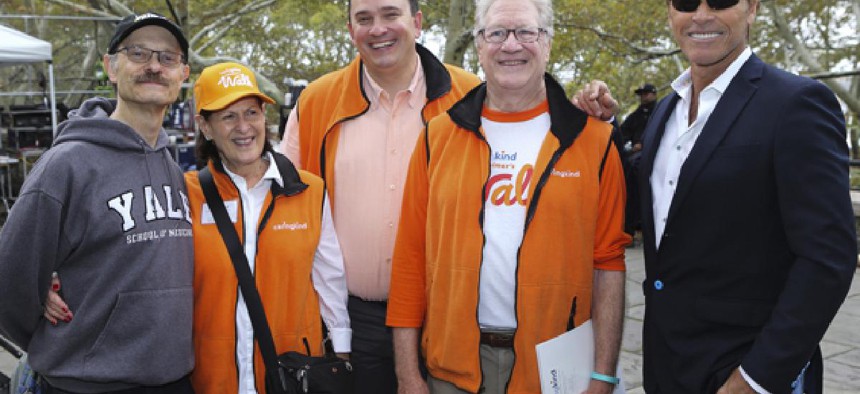NYN Media Buzz: Oct. 23, 2017

Ronald L. Glassman/CaringKind
Urban Resource Institute, one of the largest providers of domestic violence shelters and services in New York City, raised critical funds for expansion at its second annual URI Celebration fundraiser on Wednesday, Oct. 18. The night honored three of New York City’s exceptional proponents of protecting and serving domestic violence victims. Quathisha Epps, a domestic violence survivor and former resident of URI’s Urban Women’s New Beginnings shelter, was presented with the Spirit Award. Over the past two decades, Epps has used her experience as a survivor to educate communities about domestic violence and to mentor young women who face similar challenges. She serves and protects the community as an esteemed Lieutenant of the New York Police Department in the 47th precinct in the Bronx.
The paths in Riverside Park became ribbons of orange as thousands of orange-clad New Yorkers walked to support CaringKind, a leading expert in Alzheimer’s and dementia care for more than three decades. Now in its 28th year, the walk raised $600,000 to fund CaringKind’s free programs and services for the thousands of New York individuals, families and caregivers affected by a dementia diagnosis. CaringKind was formerly known as the Alzheimer’s Association, New York City Chapter. This year’s two-mile Walk was emceed by WABC-TV’s Bill Ritter.
GRANTS AND FUNDING:
The New York State Office of Alcoholism and Substance Abuse Services has developed a Request for Proposals for organizations interested in developing and implementing a Youth Clubhouse for adolescents and/or young adults, who are in Recovery from a Substance Use Disorder or are at-risk of a Substance Use Disorder. The Clubhouse should be built upon elements of the OASAS’s Recovery Centers and International Center for Clubhouse Development Model. The purpose of the Clubhouse is to provide a safe and inviting place for adolescent youth and/or young adults to develop pro-social skills that promote long-term recovery, health, wellness and a drug-free lifestyle. Bidders who plan to serve both adolescent youth and young adults need to provide a plan for how the two populations’ activities will be kept separate and developmentally appropriate.
